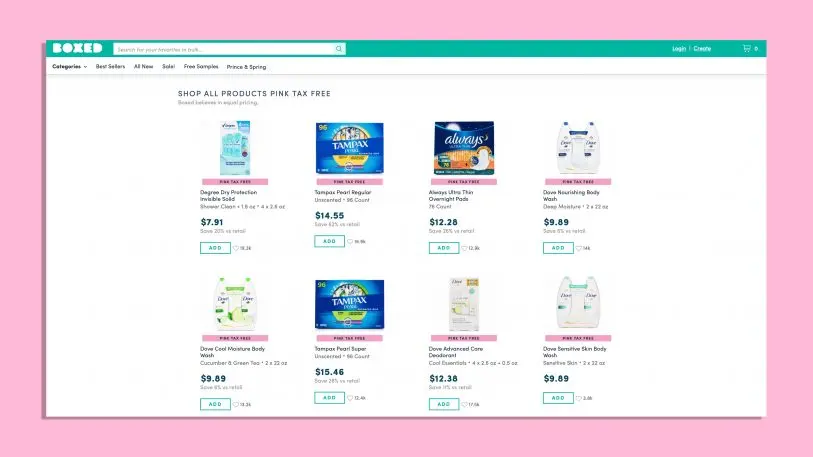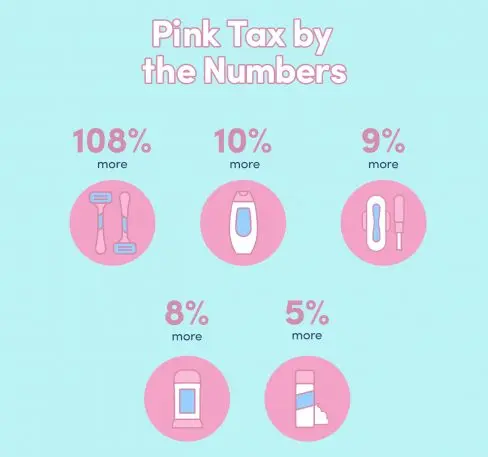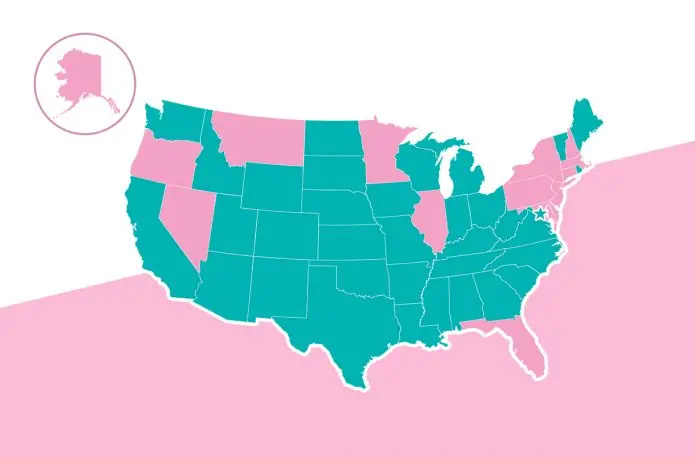Perhaps you’ve heard of the pink tax: Women typically pay far more for generally identical products made by the same manufacturers. The only difference is which gender the products targets. This happens on more than 40% of all goods sold, like deodorant and razors. It’s estimated to cost women about $1,350 more than men a year. Plus, there’s another indignity: In 35 states, women still have to pay sales tax on feminine hygiene products like tampons and pads. Despite being necessity products (which go untaxed), they’re categorized as luxury products.


Boxed’s Rethink Pink Campaign dropped the price on 20 items. In March 2019, nearly three years after launching, it reached a total of $1 million in offset discounts redistributed among customers. Along the way, Mehta has become something of an expert on the issue. Earlier this week, she shared the company’s experience during the introduction of a federal bill to eliminate the unequal pricing among manufacturers making similar products that are then resold with gender-based marketing. The legislation is called the Pink Tax Repeal Act, and it earned co-sponsorship from 28 representatives.

Perhaps the most unexpected thing for Boxed is that no one else has matched its sales tactics. According to the company, its social mission has helped customer loyalty. Women aren’t just half the population, they’re the demographic that is most often in charge of household shopping. In this case, though, Boxed would have appreciated some competition. “One of our main goals in launching this initiative was to get other retailers on board and really create that conversation and increase exposure for this issue,” Mehta says. “Almost exactly three years later, we are still the only national retailer that has taken a stand on this issue.”
Recognize your brand’s excellence by applying to this year’s Brands That Matter Awards before the early-rate deadline, May 3.
